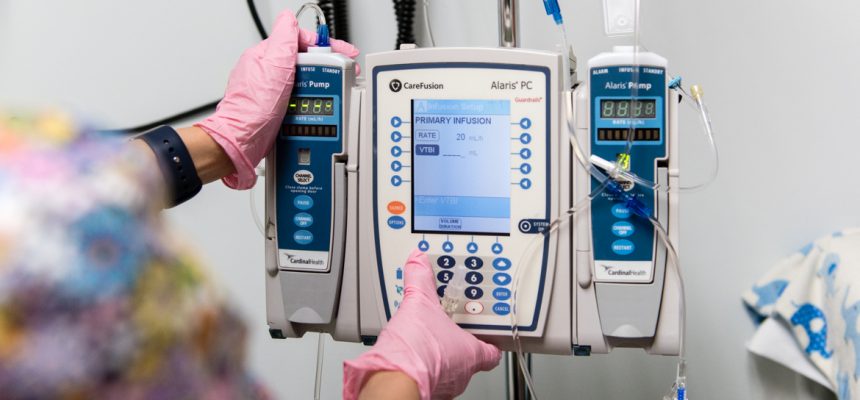Michigan Insurer Stops Coverage For Pain Therapy
By Consumers for Quality Care, on November 13, 2017

Photo By Heidi de Marco/KHN
Alex Ostrowski was just 12 when she suffered a life-threatening accident. A boat ran over her Jet Ski and she ended up pinned between its propeller and the boat’s diving board. The propeller crushed her hip and pelvis and cut the entire left side of her body. Miraculously, Ostrowski survived with both her live and both her legs.
Ostrowski spent years battling her pain until she found facet joint injections. Target 8 reports:
Six years ago, Ostrowski found Javery Pain Institute in Grand Rapids, which helped her get off high-dose opioids and find a procedure called facet joint injections that provided the pain relief she desperately sought. In that procedure, small amounts of anti-arthritic steroids — not opioids — are injected into the patient’s spinal joints.
Ostrowski and her doctor agree: the facet joint injections gave her her life back. Ostrowski was not only able to return to work, but advance into a managerial position.
Unfortunately this progress is now in jeopardy, due to policy change by her insurer. Blue Care Network, one of the state’s largest insurers, has stopped covering the injections.
Calling the treatments “experimental,” Blue Care Network confirmed the policy change:
“Blue Care Network’s current policies and coverage guidelines align with eviCore’s and are based on proven, clinical best practices,” Dr. Marc Keshishian of Blue Care Network wrote in an email to Target 8. “Our approach is to take responsible steps to eliminate unnecessary care and expenses in the health care system that drives up costs for our customers and members, by using clinically valid determinations that ensure our members get the most appropriate and effective care at the right time on their path to wellness.
“There’s no high-level evidence-based medicine supporting therapeutic facet joint injections,” Keshishian, the senior vice president and chief medical officer for Blue Care Network, continued.
While doctors will acknowledge the lack of large sample size studies examining the injections, they also see the relief they bring to their patients. Dr. Keith Javery, an anesthesiologist and pain management doctor, says the policy change is hurting hundreds of patients, in his practice alone.
“All these things that we can do to reduce the need (for opioids) are being rapidly in real time denied and not authorized by insurance companies that have been authorizing these for decades,” Javery explained.
In fact, even doctors in Blue Care’s network believe in the power of the injections:
“Facet blocks have been around since I started practice,” Dr. William Beecroft of Blue Care Network said. “They’re very effective. They work very well with relatively low side effects, adverse reactions to them. There are some better procedures now looking at a treatment plan, but if they work for the individual and consistently work for that person, it’s illogical they would be stopped.”
For now, Ostrowski is trying alternative treatments. She says the options don’t work as well as the injections did, but she can’t afford the out of pocket costs. Ostrowksi’s appeal has been denied, but she plans on asking the state to review her case.



